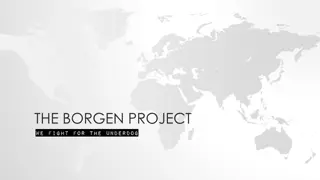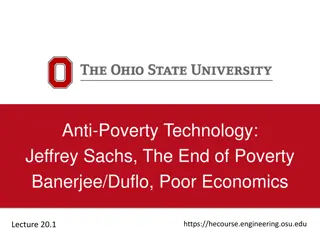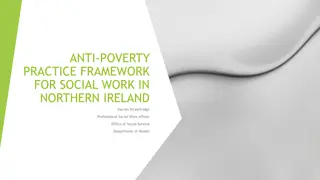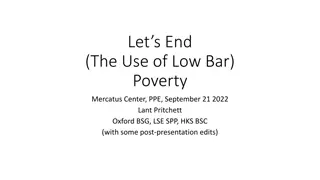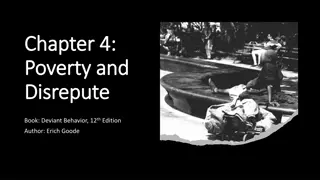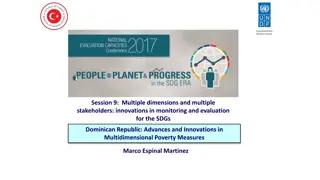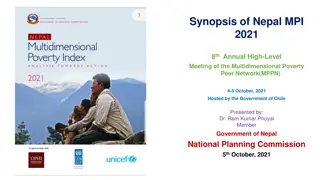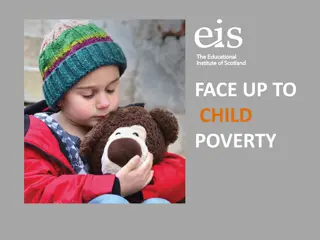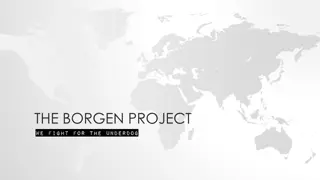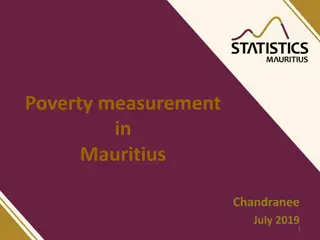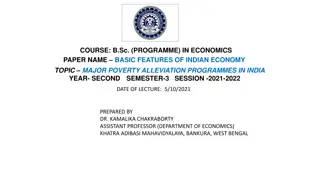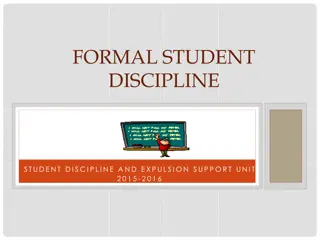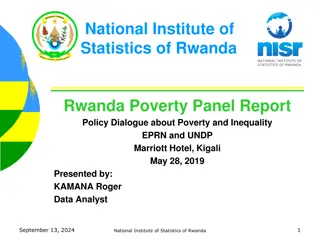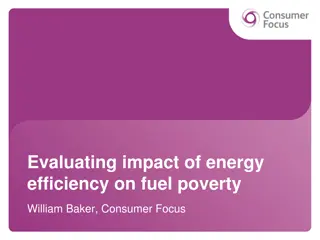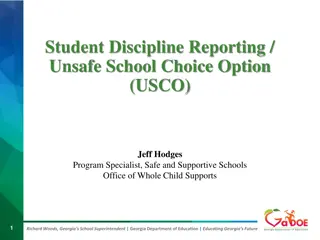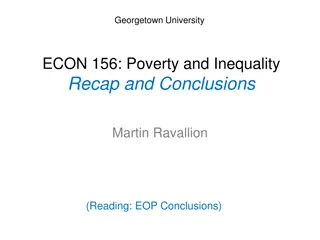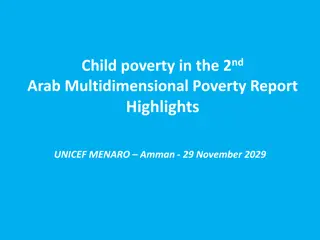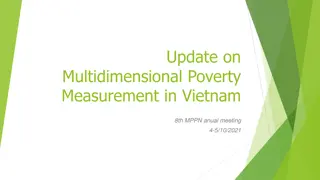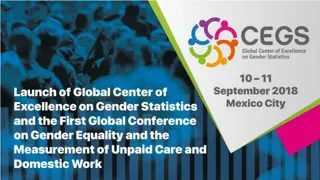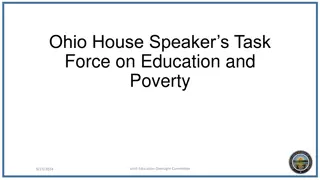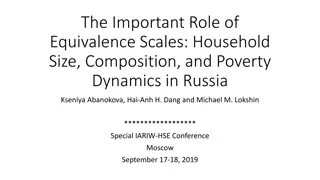Transforming Education: Addressing Poverty, Discipline, and Student Success
Exploring vital aspects of education, this content delves into the nuances of poverty versus a poverty mindset and emphasizes the need for systemic change in schools. It highlights the importance of triage in addressing issues effectively, making unexpected impacts, and navigating shifts in discipline. Essential questions are posed regarding school interventions, behavior teaching, and data-driven decision-making. The significance of school climate in reducing student suspensions is also discussed.
Download Presentation

Please find below an Image/Link to download the presentation.
The content on the website is provided AS IS for your information and personal use only. It may not be sold, licensed, or shared on other websites without obtaining consent from the author. Download presentation by click this link. If you encounter any issues during the download, it is possible that the publisher has removed the file from their server.
E N D
Presentation Transcript
Poverty Being poor is different from having a poverty mindset Being poor can change quickly A poverty mindset is seldom changed and usually is systemic in nature What are we doing to reach every student in our schools?
Triage Treat the Person You do not stick a band-aid on a mortal wound In order to stop the bleeding you have to apply pressure In order for it to heal properly you have to fight the infection
Making A Difference The Unexpected You never know who you will impact You never know who will make a difference in a life You never know who will have to take care of you
Discipline Shift What If? We are in a discipline shift in our Country and Local Community. How we will view it? How will we shape and manage it?
Essential Questions Is in-school suspension being used effectively at your school? Is out of school suspension an effective consequence for the students at your school? Is the purpose of your ILR program to keep students at your school and return them back to the classroom eventually?
Essential Questions What interventions does your school use to teach the correct behaviors to students? Who works with your teachers to give them the classroom management tools they need to survive? Who is making contact with the parents or guardians to get them involved in the process?
Data Driven Show me the data Always ask for the data before making decisions Data does not lie Let the data guide your path Lets look at the data from 2015-2016
Set Your Climate Why School Climate because 19,000 students are suspended every day in America s schools; African American students are suspended more than 2 times the rate of Caucasian students; D-Code offenses are the most common cause and the only code that shows a significant disparity.
Set Your Climate Students who are suspended just once are 3 times more likely to have contact with the juvenile justice system. 5 times more likely to drop out of school; & 6 times more likely to repeat a grade. The achievement Gap and Discipline Gap: Two sides of the same coin?
Set Your Climate Suspensions lead to Loss of instructional time, and as a direct result, decreased academic performance; Increased risk for students to repeat misconduct, thereby leading to the school-to-prison pipeline Ramiro Rubalcaba, Principal Azusa High School, PBIS
What do we do in school when A child does not know how to spell we Teach! A child does not know how to read we Teach! A child does not know how to multiply we Teach! A child does not know how to write we Teach! A child does not know how to behave we Change Seats Call Home Reassign Suspend Expel http://www.cfn211.com/uploads/7/9/9/0/7990034/overview_of_pbis_feb_14.pdf
Rethink Discipline Classroom Management PBIS/RTI/MTSS Peer Mentoring Teen Court Restorative Circles
Rethink Discipline Parent Conferences In School suspension or In School solutions Social Skills training (overcoming obstacles) ILR or New Beginnings (conflict resolution) OSS
Rethink Discipline Behavior contracts (for the specific behavior) Removals The most important aspect to consider when rethinking discipline for your school is relationships. How will the decisions made effect all educational stakeholders?
Think Outside the Box Be a game changer Do not be afraid Brian Mendler To hold teachers and students accountable To say I am sorry To say I totally understand To have the second to last word Build Consensus Change the school culture
Teamwork Changes School Culture Collaboration Implementation Evaluation Share Best Practices
Shared Best Practices In School Solutions Larry Thompson On A Roll Brian Mendler Give em Five Larry Thompson STOIC Dr. Randy Sprick Build Relationships
More Best Practices Provide a structured environment Speed Limit Lord of the Flies Respect a student s privacy Prevention Phrases Listen more and Speak less
The Challenge Do you see a park or a wall? Is the risk worth the reward? Are you willing to carry others until they are willing to try themselves?
Take Action Refuse to stop moving Will you continue to not move or will you look for solutions to solve the problem. Action happens one step at a time. How can you get things moving in the right direction at your school?
We Are Problem Solvers Launch Houston We Have A Problem Solve the problem Re-entry
Contact Information Jeremy Tompkins 439-2663 Mariangela Niles 439-2665 Michaela Tullius - 439-2667


